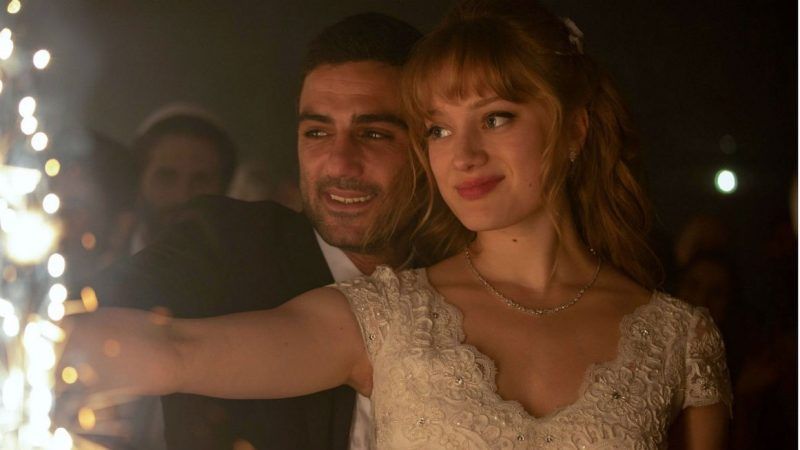Intriguing Culture Clashes Drive Mysterious Possessions
HBO Max’s murder thriller miniseries is all over the map—in a good way.

Possessions. Available now on HBO Max.
I'm generally skeptical of anything Hollywood calls "multicultural." It's usually a cover phrase for "objectively without value except for raising your social-justice score."
But HBO Max's new six-hour suspense thriller Possessions is genuinely about as multicultural as you can get: a French production shot in Israel, in French, Hebrew and English (There was probably a producer in charge of nothing but subtitles); a murder mystery underpinned by Old Testament theology; a tirade against both Arab and Jewish superstitions, except, the superstitions might actually work; an encyclopedia of sexual kinks; a training manual on Israeli police science (detective to wife whose husband has just been savagely murdered: "How was sex with him?"); and, most sobering of all, an etiquette handbook for wedding receptions. Consider this tip: When the bride and groom are cutting the wedding cake with a sharp knife, never ever turn the lights off. You'd be surprised what could go wrong.
This last one is the key to Possessions' basic scenario. Young Nathalie (French actress Nadia Tereszkiewicz—like most of the cast, virtually unknown to American audiences), a French expatriate living in Israel, has just minutes ago married her Israeli boyfriend, Eran (Imri Biton), and they're ready to cut the cake. But the lights go out for a moment, and when they return, what's sliced is not the cake but Eran's throat. The knife is still in Nathalie's hand, slathered in gore.
The culprit seems obvious, especially to the lethargic crew at the police station where Nathalie is taken. But one detective, Esti (Noa Koler), after first believing in Nathalie's guilt ("Cute girls have dark days too"), begins to think there may be at least extenuating circumstances. A physical exam reveals a brutal cross-hatching of bruises and cuts on Nathalie's legs and back. Then there's the coroner, who says the angle of the slash on Eran's throat makes it obvious the killer was left-handed. But Nathalie is a righty.
And as the cops, spurred on by the hard-charging Esti, begin interviewing witnesses, the story gets more erratic. Some of them saw a loud confrontation between Nathalie and her family, minutes before the ceremony, in which the family (particularly her belligerent and seemingly half-crazy mother Rosa, played by Dominique Valadié), demanded that the wedding be called off. Reason: unclear. Also puzzling—that smear of Nathalie's blood on a ballroom toilet, which was left before the carnage at the cake-cutting. What happened in there? Nathalie says she can't remember, pretty much her answer to all questions, except for the one about how the sex was with her fiancé: "Awesome."
Into the middle of this cacophony of confusing, contradictory clues wanders Karim (Reda Kateb), a French vice-consul of Algerian descent, who is supposed to merely be making sure that Nathalie is not being worked over by some Israeli version of Bull Connor. Instead, he falls for her, possibly because she's winningly vulnerable and possibly because she's manipulating him. (He's aware of, and torn between, both possibilities.) Soon he's running down leads, questioning witnesses and even chasing clues overseas. He's mystified by what he regards as the apathy of Nathalie's family members; they, by his fascination for a case that's really none of his business. "What is your job, exactly?" demands her father after Karim breaks into a building in pursuit of Nathalie.
That's not the only befuddling thing in Possessions. Much of it revolves around cultural confusion and miscommunication: between French and Israelis, between Israelis and Arabs, between Orthodox and Reform Jews, between estranged parents and siblings, between young and old. The characters are so isolated and, often, alienated, from one another that the early hours of the show have an almost surreal sense of aimlessness, like a jigsaw puzzle with most of the pieces missing.
But as they start to fill in, and the story starts to reach backwards, Possessions turns from weirdly fascinating to just plain fascinating. When a young Arab steals Nathalie's wedding dress to hang in a tree in his back yard, his explanation to the cops is simple: He did it to ward off demons. But what demons? The man just shrugs helplessly. They may not know what or why, but everyone in Possessions knows something evil is on the loose.

Show Comments (23)